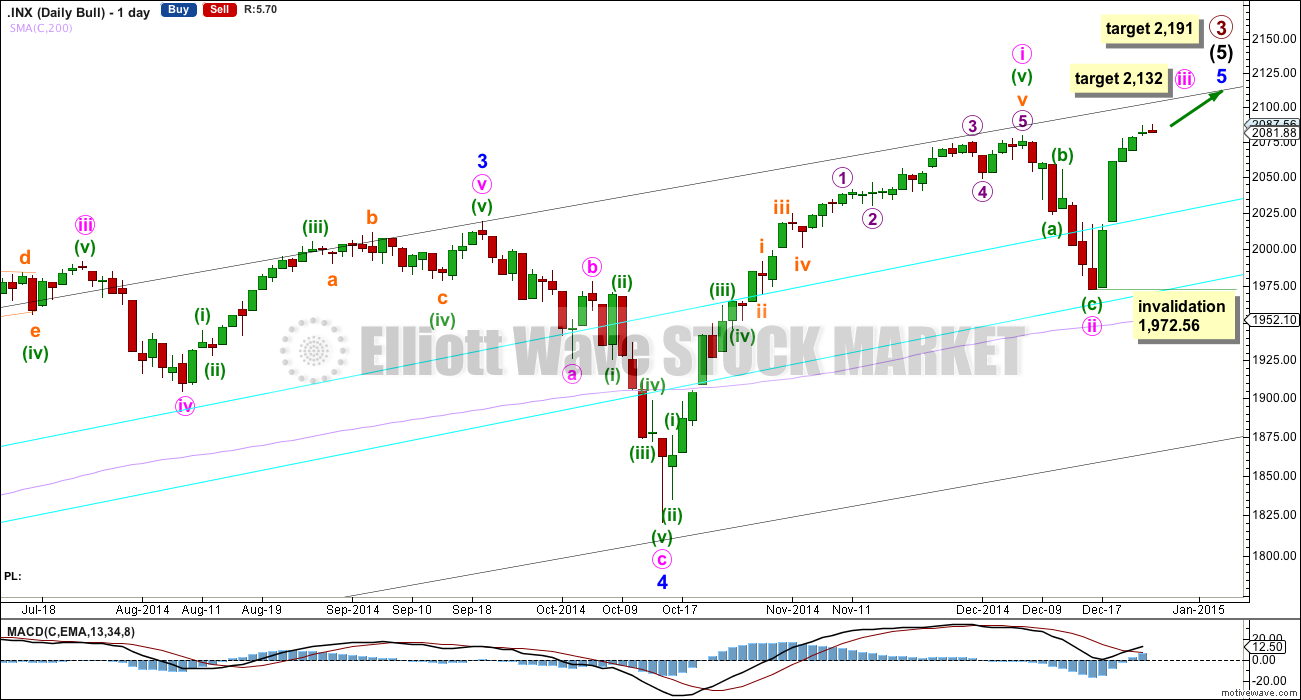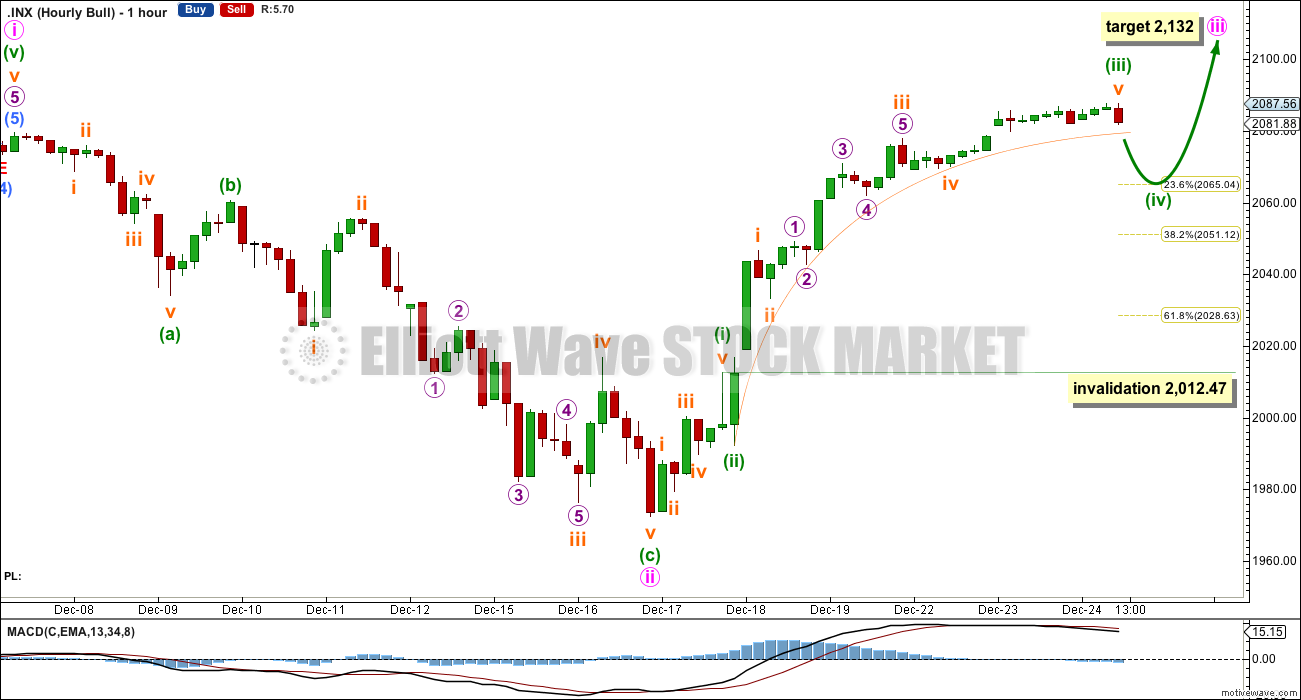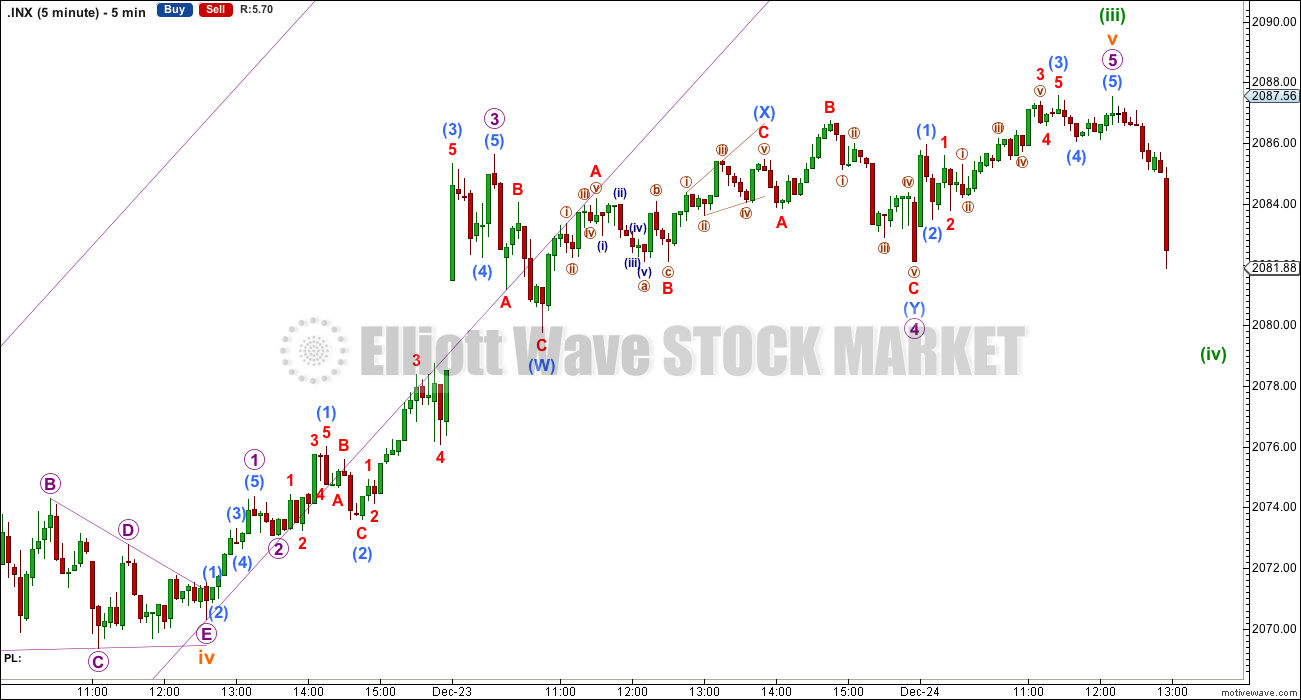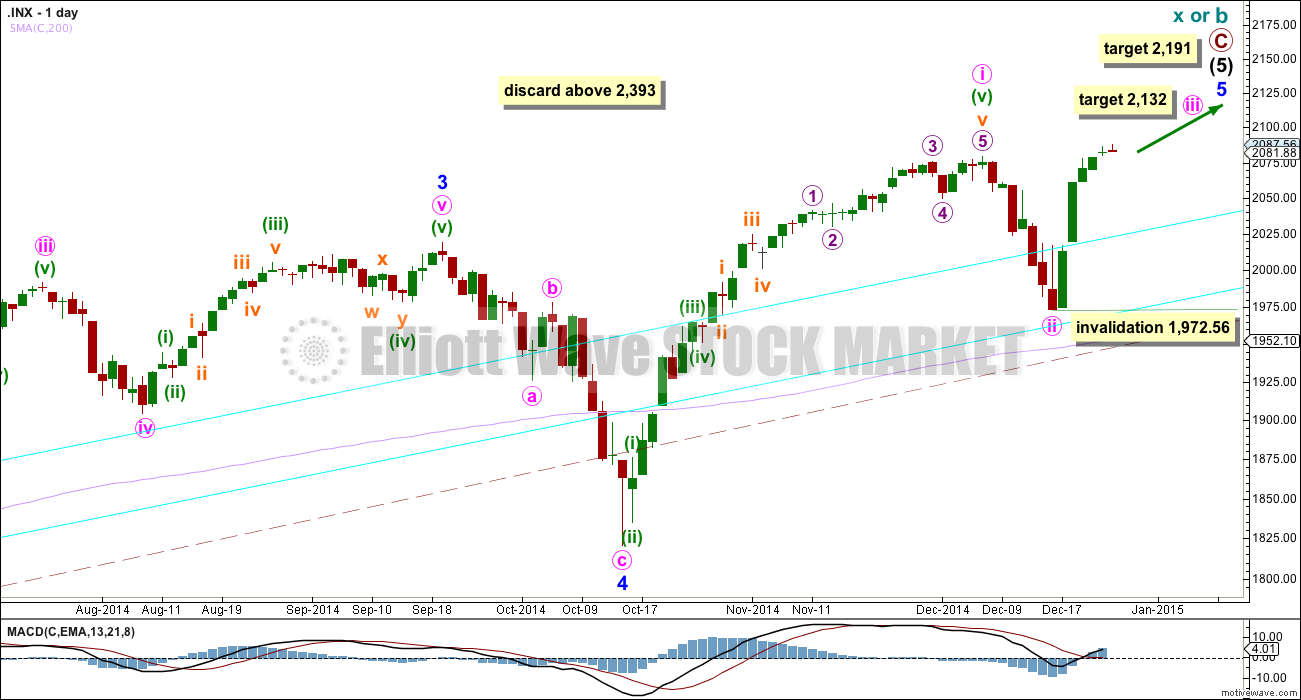Again, upwards movement was expected. I warned yesterday that the short term target may be too optimistic, and it looks like it was. It will not be met… yet. The mid term target remains the same.
Summary: In the short term I expect a small fourth wave correction has arrived which may show up on the daily chart and may end about 2,065.04. Thereafter, upwards movement should resume to the mid term target at 2,132. The mid term target may be met in another 7 or 15 trading days.
Click on charts to enlarge.
Bull Wave Count
I will favor neither the bull or bear wave count. Both are viable and both expect this current upwards impulse may again be close to complete.
To see a weekly chart with subdivisions and how to draw trend lines and channels click here.
Upwards movement from the low at 666.79 subdivides as an incomplete 5-3-5. For the bull wave count this is seen as primary waves 1-2-3.
Within intermediate wave (5) minor wave 2 is an expanded flat and minor wave 4 is a zigzag. Minor wave 3 is 14.29 points longer than 1.618 the length of minor wave 1.
At intermediate degree there is also a very close relationship between intermediate waves (3) and (1): intermediate wave (3) is just 0.76 points less than 2.618 the length of intermediate wave (1).
The aqua blue trend lines are traditional technical analysis trend lines. These lines are long held, repeatedly tested, and shallow enough to be highly technically significant. When the lower of these double trend lines is breached by a close of 3% or more of market value that should indicate a trend change. It does not indicate what degree the trend change should be though. It looks like minute wave ii may have ended just short of the lower aqua blue trend line, which gives the wave count a typical look.
There is still triple technical divergence between MACD and price at the weekly chart level.
At 2,132 minute wave iii would reach 0.618 the length of minute wave i. Minute wave i lasted seven weeks, 36 days, which is two days longer than a Fibonacci 34. Minute wave iii may be either 13 or 21 days in total if it is to be 0.382 or 0.618 the duration of minute wave i. This would see it continue for a further 7 or 15 trading days.
At 2,191 primary wave 3 would reach 1.618 the length of primary wave 1. This would expect that minor wave 5 is either an ending contracting diagonal (minute wave i would be seen as a zigzag, which is possible) or within minor wave 5 minute wave iii will be shorter than minute wave i, and minute wave v will be shorter still. Both these scenarios are possible. Or the target is wrong.
The end of minuette wave (iii) has probably arrived, and it formed a slow curve typical for the S&P. I would expect minuette wave (iv) to break below the orange curved line, which would provide confidence that it has arrived.
Minuette wave (iii) is 9.15 points short of 2.618 the length of minuette wave (i). This is just less than a 10% variation on its length, so I will accept it as a viable Fibonacci ratio. Just.
Ratios within minuette wave (iii) are: there is no Fibonacci ratio between subminuette waves iii and i, and subminuette wave v is just 0.46 longer than 0.382 the length of subminuette wave iii.
Minuette wave (iv) is likely to end close the the price territory of the fourth wave of one lesser degree, which is from 2,077.85 to 2,069.28. It may end about the 0.236 Fibonacci ratio of minuette wave (iii) at 2,065.04.
Minuette wave (iv) may not move into minuette wave (i) price territory below 2,012.47.
Bear Wave Count
This bear wave count differs from the bull wave count at the monthly chart level and at super cycle wave degree. To see the historic picture go here.
The subdivisions within primary waves A-B-C are seen in absolutely exactly the same way as primary waves 1-2-3 for the bull wave count. Thus targets and invalidation points for the mid term are exactly the same. The structure on the hourly chart is also the same. These wave counts do not diverge, and they probably will not for months yet.
At cycle degree wave b is over the maximum common length of 138% the length of cycle wave a, at 164% the length of cycle wave a. At 2,393 cycle wave b would be twice the length of cycle wave a and at that point this bear wave count should be discarded.
While we have no confirmation of this wave count we should assume the trend remains the same, upwards. This wave count requires confirmation before I have confidence in it.
This analysis is published about 04:24 p.m. EST.




